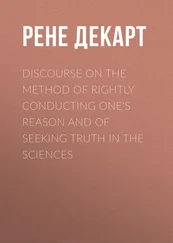‘According to the Method, inadmissible love is a capital offence. If we were to express our love physically, we’d be punished in the same way as people who spread disease.’
‘You think you’ve got a problem? You don’t know the first thing about suffering, Rosentreter. You think you can change a situation that’s been going on for hundreds of years? You , of all people!’
‘It’s a ridiculous situation!’
‘It’s more ridiculous to think you can fight it. You’re an arrogant fool, Rosentreter. Indulge your illicit passion, but do it discreetly — like everyone else! No one wants to hear about it. The world isn’t interested in your personal affairs.’
‘Frau Holl, if you don’t mind, I’m going to step outside the lawyer — client relationship for a moment. I’m Lutz, by the way.’
Mia looks at him doubtfully. At last she extends a hand. ‘Mia,’ she says.
‘Lutz,’ says Rosentreter again.
They shake hands briefly and let go.
‘Mia, I’ve got something to say to you.’ Rosentreter raises his voice to a shout. ‘You’re a bitter, lonely rationalist and you don’t know a thing about happiness! I pity you, Mia Holl.’
‘Cripes,’ says the ideal inamorata.
‘Fine,’ says Mia furiously. ‘I’m a rationalist! Maybe I’m bitter and lonely as well. But if you insist on pitying me, pity me for this!’
She jumps up, grabs a photograph from her desk and drops it into Rosentreter’s lap. It is a picture of Moritz on the end of a length of fishing twine. Those unfamiliar with hanging will need to take a second look. A person who hangs himself loses all humanity from his face. His tongue swells to three times its usual size and protrudes from his mouth; his eyes, similarly intent on escaping, leave their sockets. The overall skin colour is blue. Rosentreter looks from the corpse to Mia and back again. In the competition for the greatest personal tragedy, he has lost.
‘It’s hard to bear,’ he says softly.
‘Since Moritz died,’ says Mia, ‘I haven’t seen the moon. I look out of the window, and it’s gone. Do you think it’s abandoned us and journeyed into space? I wouldn’t blame it.’
Rosentreter is on his feet as well. He walks slowly towards Mia, as if she were an animal that might bolt at the slightest wrong move.
‘Before we all set off for space together,’ he says, ‘I’d like to look at Moritz’s files. I could go over the evidence, maybe reopen the case.’
The ideal inamorata sits bolt upright. ‘Could you prove his innocence?’
‘Who knows, I might be able to prove his innocence. Listen, Mia, I wouldn’t be doing it for you. I’ve been waiting for years to wrong-foot the Method. All I need …’
‘If he’s really prepared to do it,’ says the ideal inamorata, ‘we’ll do anything, anything .’
‘A chance is all I need.’
The doorbell rings and Rosentreter stiffens. Mia hurriedly stuffs the photo into a drawer.
THE FEAR LEAVES Rosentreter’s body, strides once around the room and enforces an unnatural hush. If the defence counsel were to reflect on the matter, he would not be surprised to find himself looking at this particular person, a man who is better informed about Mia’s application for exemption than the minister of state. But Rosentreter doesn’t have time to reflect, mainly because it takes him too long. Being nice requires a certain slowness, as well as an absence of courage.
‘Santé, one and all,’ says Kramer.
‘Hello,’ says Mia.
‘Santé,’ murmurs Rosentreter.
‘Not him again,’ says the ideal inamorata.
Kramer looks fantastic. There are two main reasons for this: first, his hat and stick, which are intended to convey the look of a casual flâneur ; and second, his almost offensively buoyant mood. He is standing taller than usual and his smoothly shaven cheeks are aglow with the sunny confidence of a well-fed baby. He strolls into the apartment with a silent fanfare.
‘Well, well,’ he says, pointing to Rosentreter as if to call attention to an interesting work of art. ‘So the loyal defender of justice is here as well. You’re always at hand when there’s a private interest to be protected, right, Rosentreter?’
It would be obvious to anyone that Rosentreter is afraid of Kramer. He backs away from him as if he were contagious, only to find himself sitting on the sofa, which has inserted itself obligingly between him and the ground. Rosentreter has known Kramer for years and he knows his gaze, a gaze that distinguishes between the Method’s friends and enemies with the uncanny alertness of a sleepwalker finding his path. Loving the wrong woman isn’t actually illegal, provided it is done from afar, but it makes a person look suspicious. It is well known that ‘love’ is merely another word for an immunologically favourable match. Any other type of relationship is diseased. Rosentreter’s love is a virus that could contaminate society. Over time, he has realised that true loneliness lies not in the separation from his loved one, but in concealing his impossible longings. Unfortunately, Kramer’s ears are almost as sharp as his eyes. In the ensuing silence, Rosentreter tortures himself with the thought that Kramer could have been eavesdropping outside for a while.
Thankfully, Kramer’s attention seems to be elsewhere. He turns to Mia.
‘Frau Holl,’ he says, ‘I’m afraid I’ve got bad news.’
‘Break it to me gently,’ she says.
Kramer walks towards her. For a moment, it looks as if he is about to infringe Article 44 of the hygiene laws regarding mouth-to-cheek contact, but he adjusts his course and walks straight past her, removing his gloves and placing them with his hat and stick on the desk.
‘The profile piece we talked about earlier. I’m afraid it won’t happen. Things have moved on.’
Without stopping to ask permission, he strolls into the kitchen to make himself a cup of hot water.
‘It’s a pleasure to see you anyway,’ he calls through the door. ‘For an old news hound like me, the commotion you’re causing is an absolute treat.’
‘He’s the one causing the commotion,’ says Mia with her eyes on Rosentreter.
‘Interesting,’ says Kramer, poking his head round the door. His eyebrows soar upwards in two sweeping arcs. The ideal inamorata raises her eyebrows and mimics his astonishment.
‘What profile piece?’ asks Rosentreter quickly.
‘It was his idea to apply for an exemption,’ says Mia.
‘Anyone else for hot water?’ asks Kramer.
‘Please,’ says Mia.
‘Thank you,’ says Rosentreter with a shake of the head.
‘I hope he’s not causing problems,’ says Kramer, returning with two steaming cups. ‘I can arrange for him to be replaced. I’d love to know what he’s been telling you for the past thirty minutes.’
The temperature must be rising in Rosentreter’s part of the room. He runs a finger around his collar and at the same time tries to maintain a professional air. Kramer is leaning against the desk and looking expectantly at Mia over the rim of his cup. Mia is looking at her lawyer, whose face is in a state of hopeless disarray. For a moment, the idea of getting rid of Rosentreter holds a certain appeal.
‘Mia!’ says the ideal inamorata in a warning tone.
Startled, Mia shakes her head as though surprised at herself. ‘Rosentreter’s told me nothing,’ she says at last. ‘We were discussing the evidential weight of a defendant’s confession.’
‘In other words,’ says Kramer, ‘you were discussing your brother’s case. Well, at least he wasn’t tortured , which is a mercy, don’t you think?’ Before Mia can reply, he chuckles and carries on. ‘These days we can be thankful that new forms of evidence have replaced the confession. I’m talking about modern-day data collection, of course. It’s impossible to gather too much information.’ He pauses. ‘Come on, Rosentreter, surely you disagree? No …? You astonish me. Usually I have to waste my time explaining that data collection is essential for protecting individuals from false allegations. The more detailed the information about a person, the more fairly we can judge. Isn’t that right, Frau Holl?’
Читать дальше












